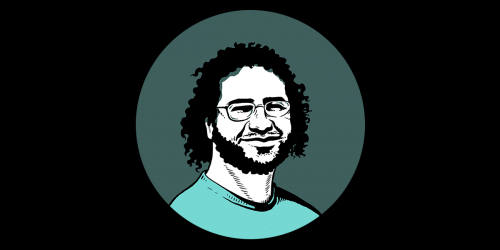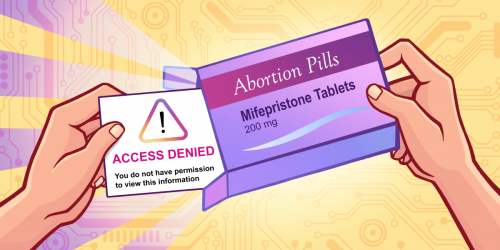When Sarah Palin placed crosshairs over political districts her political action committee was targeting in the 2010 midterm election, there was an outcry but she wasn’t arrested. Although some claimed the imagery was violent, no one believed Palin was actually intending to shoot anyone. But when Anthony Elonis posted some ugly speech on his Facebook account, fantasizing about killing his ex-wife and law enforcement agents, he was arrested, indicted for making Internet threats and sentenced to more than three and a half years in prison. Elonis claimed he was venting and that he didn’t mean what he said. The prosecutor explained to the jury that it didn’t matter what Elonis thought, and the Third Circuit Court of Appeals agreed, ruling the government only had to show a reasonable person felt threatened by the posts.
With Elonis’ case now before the Supreme Court, we’ve joined an amicus brief filed by the Student Press Law Center and the PEN American Center to explain why the unique nature of the Internet and the First Amendment require the government prove a person actually meant to make a threat before he can be prosecuted.
This is especially important for youth who communicate through social media. One of the great things about the Internet is its ability to spread speech far and wide. But that also means speech may be misunderstood when it is received by an unintended audience or without the original context in which it was published, creating the risk that fiery rhetoric is transformed into criminal liability. We've already seen how one 18 year old who posted some ugly trash talk on Facebook is now facing ten years in prison. Obviously, there is no room in our society for true threats of violence, whether spoken online or offline. So requiring a subjective intent to threaten is the best way to balance First Amendment values with public safety. Speech that appears threatening but is clearly parody or a joke is protected, while true, violent threats meant to be threatening are punished.
The rapid growth of social media has clearly benefited society, enhancing the ability to connect with other people far and wide and with those both within and outside of our communities. Hopefully, the Court will help preserve this public resource by not unnecessarily extending criminal liability in overbroad ways.
Sean D. Jordan, Kent C. Sullivan, Peter Ligh and Travis Mock of Sutherland LLP, wrote the brief for EFF, SPLC and PEN American Center.









